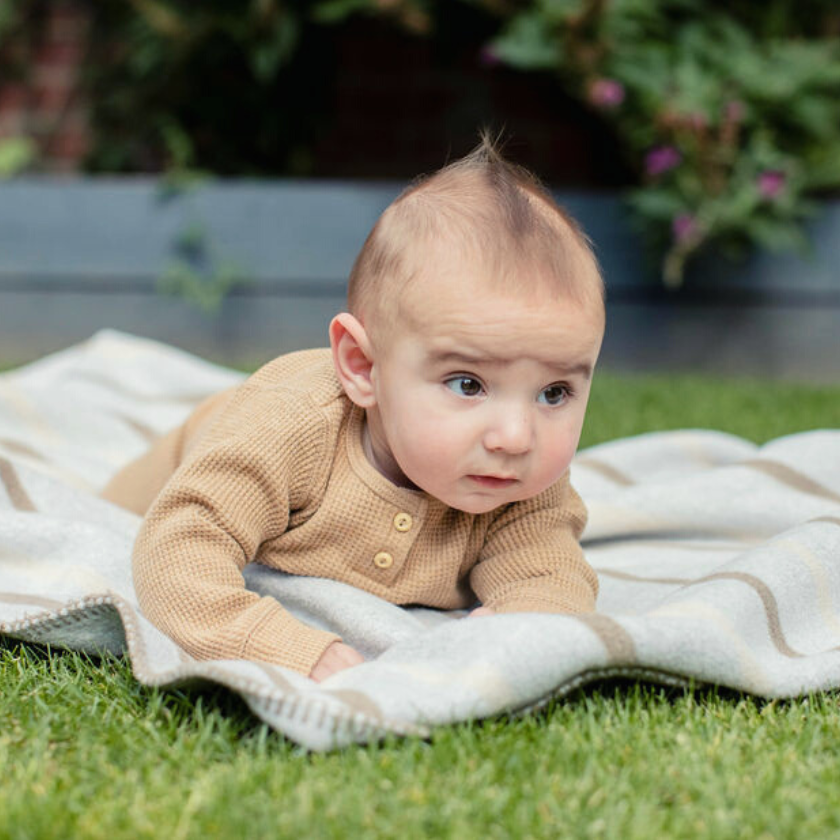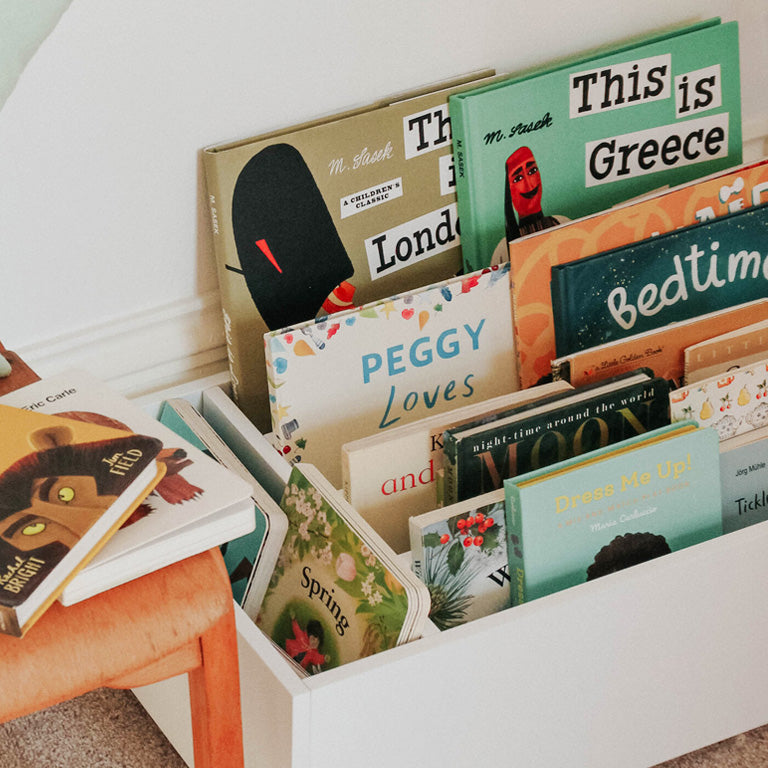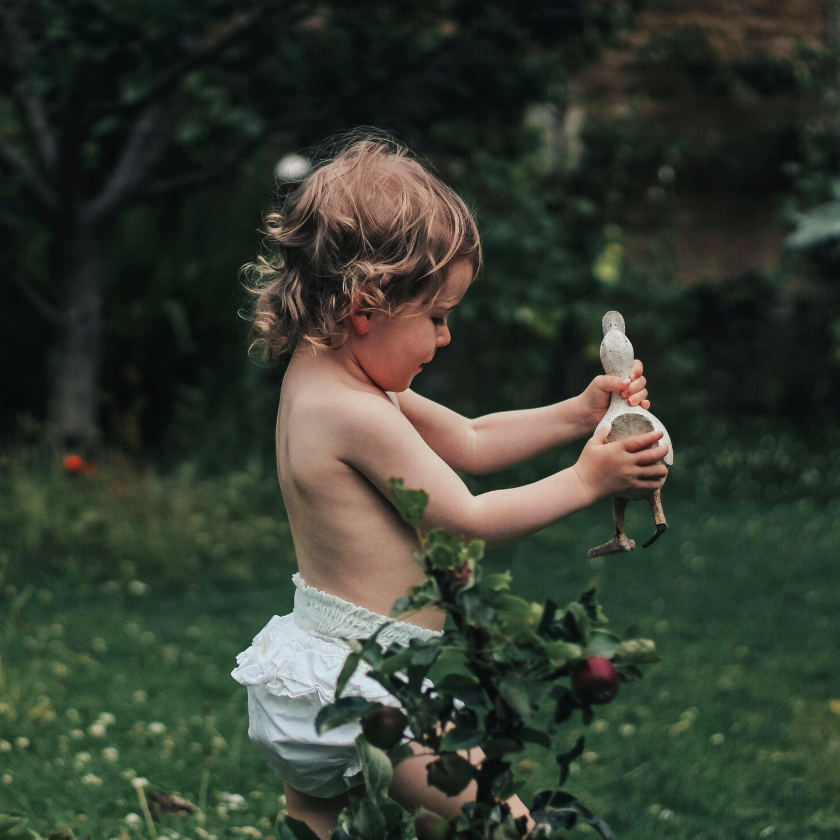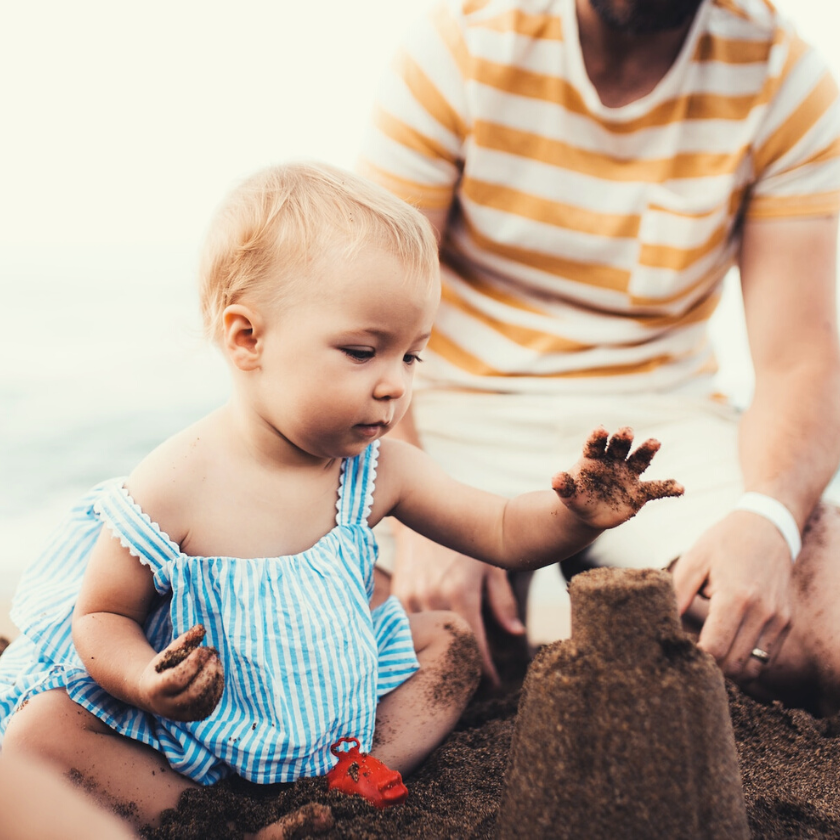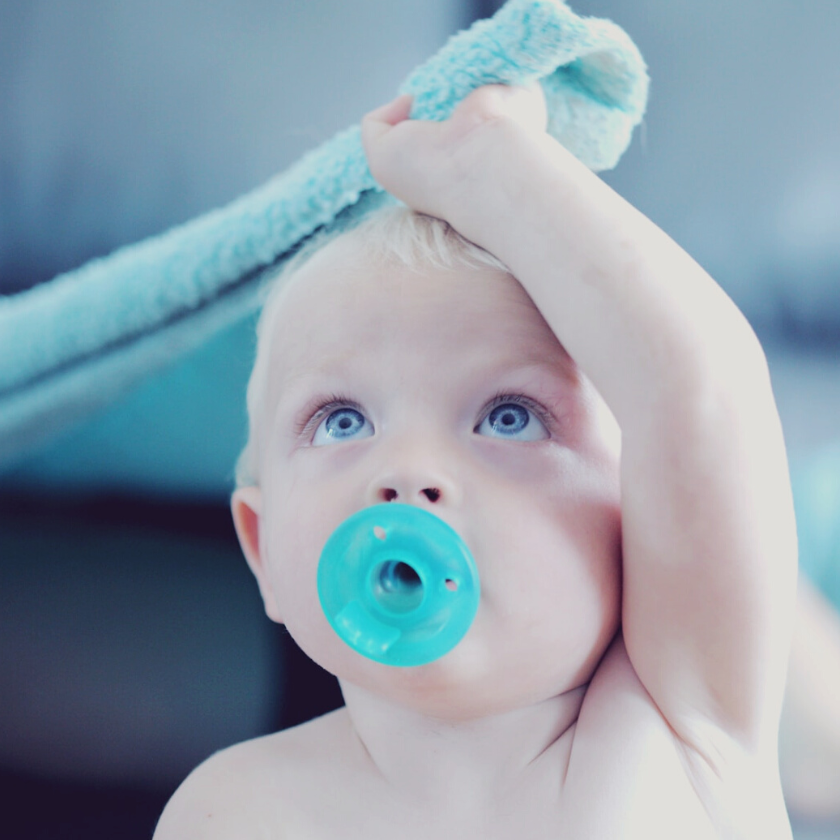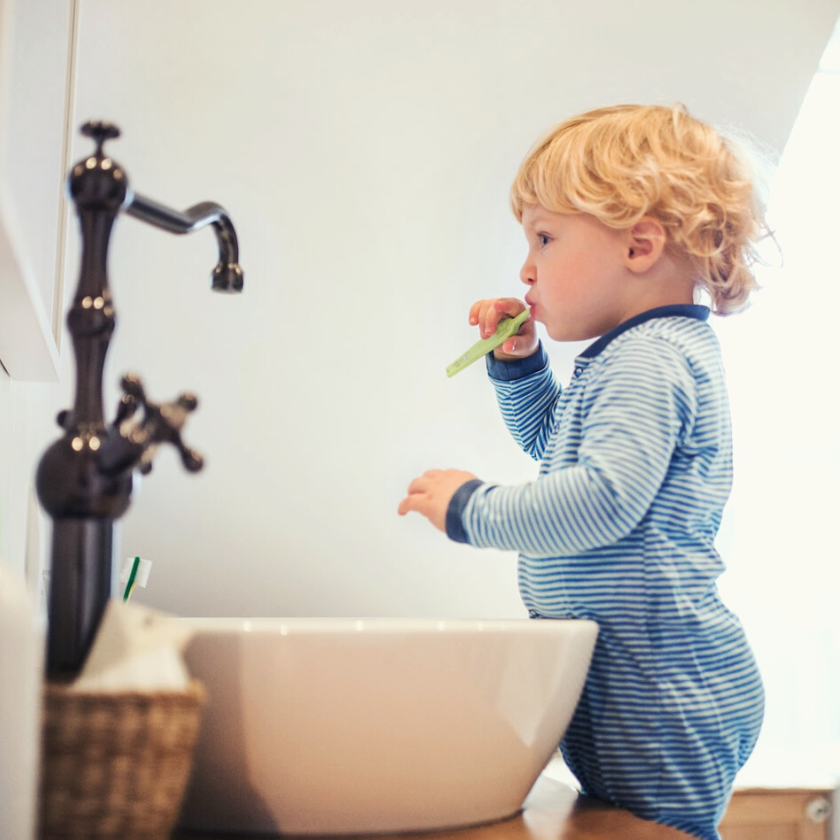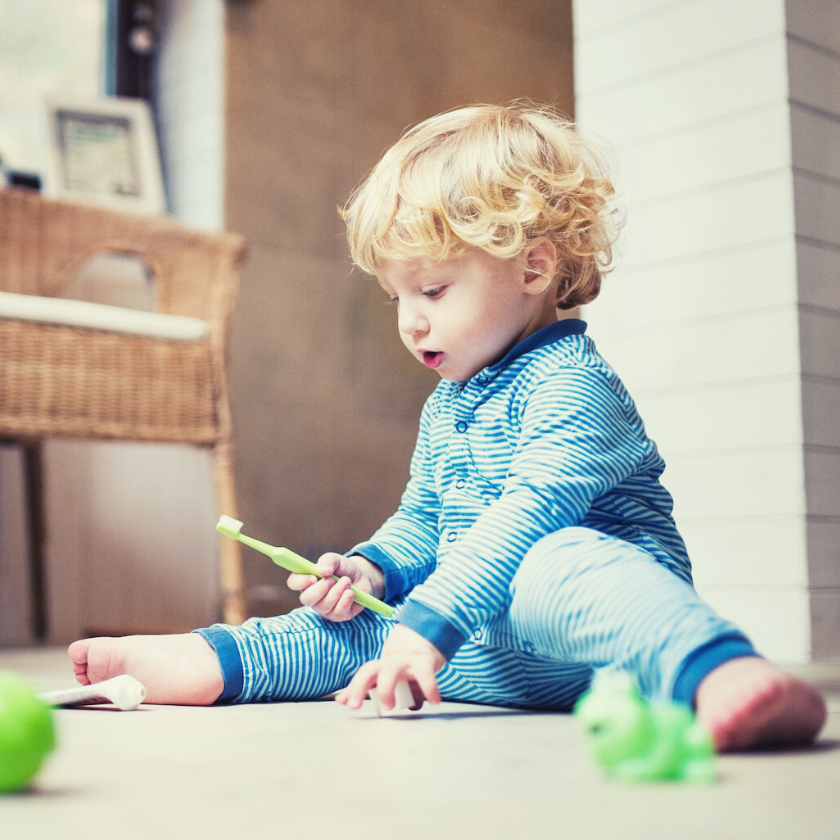Wellbeing
6 MINS
Your questions about
baby teeth - answered
Have you ever wondered whether your baby should have their first tooth yet? Or, if they have teeth, are they in the right place? When should baby teeth come through, and in what order?
With so much to think about as a new parent, understanding your baby’s teeth can be low on your list. The final blog in our National Smile Week series, we’re answering some of the most-asked questions by parents.
When do baby teeth come through?
The first thing to know is that every baby is unique (you’ve probably figured that much out already). This means that your baby’s teeth might appear at different times than other babies. That’s ok.
Baby teeth usually start to peep through gums (called ‘eruption’ by dentists) when your baby is about 6 months old. Remember though, that 6 months is the average, so some babies will have teeth earlier or later than that. Some babies are even born with teeth (although this is pretty rare).
.png?v=1675701093354)
When to start brushing
As soon as they appear! When you see that first tooth pop through that’s the time to begin brushing. Brush your baby’s teeth twice a day. The bedtime brush is the most important as teeth are more vulnerable to decay at night. The second brush can be whatever time best fits with your routine.
Which teeth appear first
By the time your baby is 2 to 3 years old they will have 20 baby teeth in total (adults have 32 teeth). The front teeth tend to appear first and the back teeth last the later. Next are usually the two upper front teeth. Both top and bottom front teeth grow right in the middle so they’re easy to spot.
The rest of your baby’s teeth will come through in roughly 6 months intervals. Baby teeth last a pretty long time (up to 10 years) and don’t begin to fall out until kids are around six years old.
What is the difference between baby teeth and adult teeth?
Baby teeth are smaller and whiter than adult teeth. The hard outer layer (known as enamel) is thinner in baby teeth. This means that baby teeth can decay more easily than adult teeth (another reason to establish a good brushing routine).
Just like adult teeth, baby teeth have roots too, although we don’t see any roots by the time baby teeth fall out. The roots on baby teeth start to disappear as the adult teeth grow up underneath them and this prepares the teeth for falling out (and easier to wobble them too).
Why do baby teeth matter (as they fall out anyway)?
As baby teeth don’t last forever, it’s easy to think they don’t matter. But there's lots of reasons why baby teeth matter. The most obvious is to chew solid food, but they have some less obvious roles too. As your baby learns to talk they will need their teeth to form words and baby teeth also play a key role in guiding adult teeth through to the right place in the jaw.
This can help avoid problems later that may need orthodontic braces to put right. And, of course, if a baby tooth gets decayed, it can lead to pain and infection (and a less than ideal first trip to the dentist) for your little one. So keeping these teeth healthy will help your baby in lots of ways.
And so...
Baby teeth might not be around forever but they do a great job in supporting your baby to grow and develop healthily. Our next post will look at how to keep baby teeth clean and prevent that dreaded tooth decay.
Want to know more about you dental health for your baby? Check out our series of blogs in our month long baby teeth focus.
You might like...
Need a good read while you feed?
Stay in the loop on all things Nannycare with our newsletter


-(1).png?v=1687795729095)
